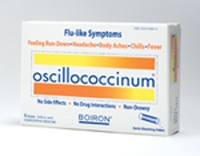Joanna Cosgrove04.01.09
Advocating Senior Wellness
AARP looks to improve the quality of life for those over 50 through a variety of health and wellness plans.
By Joanna Cosgrove
Online Editor
 |
Founded in 1958, AARP is a non-profit, non-partisan membership organization that helps people 50 and over enhance their quality of life, lead positive social change, and deliver value to members through information, advocacy and service. According to the organization, a top concern of its membership today—which spans 40 million people—is health and wellness.
“Wellness is extremely important to our membership and it’s a big part of our mission that people age with dignity and that they’re able to continue doing the things they love late into life, staying vital and active,” commented Kelly Griffin, portfolio director of healthy behaviors and prevention, AARP. “Wellness is a big part of living life the way they want to live it.”
Ms. Griffin explained that AARP has three “buckets” of recommendations in place to encourage healthy living, healthy behaviors and prevention. The first bucket of recommendations revolves around physical activity. “Stay moving, stay strong, stay active,” she said. “We specifically focus on walking; we have a lot of tip sheets and online walking programs that we conduct with state, local and national partners to encourage our members.”
Preventive Services comprise the second bucket of recommendations. AARP works to develop healthcare research and checklists for all of the preventive services people age 50 and over should be getting and how often they should be getting them.
The third and final bucket is termed “Wise Use of Medicine,” which essentially endeavors to help senior adults get a handle on the medications they are taking, what they’re for, and how they should be taken. “Keeping a personal medication record is a big behavior that we encourage and we provide those records for people to fill in,” said Ms. Griffin. “It’s very important that people understand their medicines and write down a written list that they can show each provider [because] particularly in our membership, a lot of older people see more than one doctor…and a lot of times there are medication errors or interactions because one specialist doesn’t know what medications that person is already taking.”
She added that medicine confusion is a prevalent problem. “Sometimes we find there’s some confusion in terms of dosage, so it can get very complicated,” she said, noting that people over the age of 65 take, on average, eight to 10 drugs. “We encourage people to get organized and fully understand the drugs by asking their doctors questions. It’s important they be informed, and in turn, keep all of their providers informed.”
When it comes to dietary supplements, Ms. Griffin said AARP doesn’t have an official position on them, but that they do caution members about them. “They’re not regulated in the same way that prescription and over-the-counter drugs are regulated,” she said. “We caution people as part of our healthy behaviors, prevention, wellness information and programming. We encourage people to tell their doctors what they’re taking, including dietary supplements, vitamins and minerals.”
Ms. Griffin also outlined the top concerns of AARP’s constituency, one of which is cognitive health. “There’s a lot of concern about memory loss,” she said, “what’s normal and what’s early onset Alzheimer’s.”
Healthcare costs are another big concern. “Our primary effort at AARP this year is enacting health reform,” she said, adding that the association is eager to address that concern under the helm of new CEO A. Barry Rand, who earlier this month, succeeded Bill Novelli, who departed AARP after an eight-year tenure as CEO.
Ms Griffin said AARP’s number one overarching goal is to find ways to help its members live a full and satisfying life. “The top health and wellness concern is that they’re able to continue doing what they’ve always done, and what they always do without being limited,” said Ms. Griffin. “If they want to travel the world, swim, bike, or play tennis, they really don’t want to be limited in any way and they’re very motivated to take care of their health.”
And although the association is a trusted provider of information to adults over age 50, AARP is keen on the feedback it receives from its membership to shape its view of health and wellness. “They constantly tell us through polls and in our online chat rooms that they’re interested in health and wellness information and that they trust us as a source of that information,” Ms. Griffin said. “We’re always responsive to feedback we receive on our programs and materials. Particularly for Boomers and for the vitality of the “Greatest Generation,” the older generation, that [health and wellness] is a huge concern for them. They really just want to live their lives how they want, without being encumbered.”



















